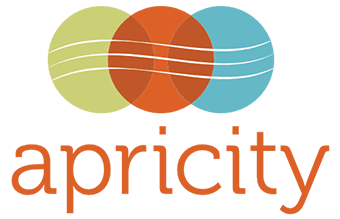The treatment of substance use disorder (SUD) involves a comprehensive and individualized approach. It typically includes a combination of behavioral therapies, counseling, medication-assisted treatment (MAT), support groups, and lifestyle changes. Here are some common treatment modalities for substance use disorders used at our gender-specific residential treatment facilities in Appleton, Wisconsin.
CBT is a goal-oriented therapeutic approach that addresses negative thought patterns and behaviors. It helps individuals identify and change destructive beliefs, fostering healthier coping mechanisms and promoting positive mental health outcomes.
MI in Substance Use Disorder therapy is a client-centered approach that explores and enhances an individual's intrinsic motivation for change. Therapists employ empathetic listening, reflective questioning, and goal setting to evoke a person's internal motivation, fostering commitment to positive behavior change and sustained recovery.
In a collaborative effort to enhance treatment, Apricity counselors, recovery coaches, treatment court professionals, and parole officers share insights on the client's progress, challenges, and goals. This cohesive approach, combining therapeutic support with legal oversight, resulted in a more effective and supportive environment for the client's sustained recovery, showcasing the positive impact of interdisciplinary cooperation in SUD treatment.
Involving family members in the treatment process can help address family dynamics, improve communication, and support the individual in rehab.
Trauma-informed care acknowledges the pervasive impact of trauma on individuals with substance use disorders. This approach prioritizes creating a safe, supportive environment that recognizes the potential link between trauma and addiction. By emphasizing safety, trust, and empowerment, treatment providers aim to minimize re-traumatization and facilitate healing. Trauma-informed care incorporates sensitivity to individual experiences, fostering a collaborative and understanding approach that enhances the effectiveness of AODA treatment by addressing the underlying trauma contributing to substance use.
Individual alcohol and drug therapy sessions provide a confidential and personalized space for clients to address substance use concerns. Guided by a trained counselor, sessions focus on exploring personal triggers, underlying issues, and developing coping strategies. Tailored treatment plans and evidence-based techniques are employed to support the individual's unique journey towards recovery. The therapist collaborates with the client to set goals, assess progress, and provide ongoing encouragement and guidance. These one-on-one sessions offer a comprehensive and individualized approach to address the complexities of alcohol and drug dependency.
Group SUD therapy fosters a supportive environment where individuals facing addiction share experiences, struggles, and triumphs. Led by trained professionals, these sessions provide a safe space for open dialogue, empathy, and mutual understanding. Group dynamics promote accountability, encouragement, and the development of coping strategies essential for successful recovery.
Integrating art and music therapy proves instrumental in fostering emotional expression and self-discovery. These creative modalities empower individuals to explore their struggles in non-verbal ways, offering a therapeutic outlet.
Incorporating physical activity can be a beneficial and holistic approach to support recovery. Regular exercise has been shown to have positive effects on both physical and mental well-being, contributing to the overall success of substance abuse treatment. Physical activity can help alleviate symptoms of anxiety and depression, which often co-occur with substance use disorders. Moreover, engaging in regular exercise can provide individuals with a structured and positive outlet for stress management, reducing the likelihood of relapse.
Peer-to-peer support is a critical component in addressing substance use disorders, providing individuals with a sense of understanding and shared experience as they navigate the challenges of recovery. Peers who have successfully overcome substance use challenges can offer empathy, encouragement, and practical guidance to those currently struggling. This form of support fosters a non-judgmental environment where individuals feel heard and understood, promoting a sense of hope and motivation for sustained recovery. Apricity recognizes the value of peer support in complementing formal treatment strategies, emphasizing the importance of a holistic and community-driven approach to address substance use disorder effectively.
Substance use disorder relapse prevention is a crucial aspect of addiction treatment, emphasizing strategies to sustain recovery and minimize the risk of returning to addictive behaviors. It involves identifying triggers, developing coping mechanisms, and fostering a supportive environment. Effective relapse prevention educates individuals about the nature of addiction, helping them recognize warning signs and implement proactive measures. Incorporating therapy, support groups, and lifestyle changes, it aims to enhance resilience and stress management skills. Continuous self-monitoring and adherence to a personalized recovery plan are vital components, empowering individuals to navigate challenges and build a resilient foundation for sustained sobriety.
A well-structured aftercare plan, including a work component or volunteering, can improve the likelihood of sustained success. Apricity's unique employment program has a long history of hiring men and women in recovery. The peer-run program understands the recovery journey. It is easy for someone early in recovery to gain confidence and security in a new way of life when working alongside others on the same journey.
Meditation plays a pivotal role in recovery at rehab facilities, providing a holistic approach to healing. Incorporating mindfulness meditation aids individuals in managing stress, cravings, and emotional well-being. By fostering self-awareness and reducing anxiety, meditation becomes a valuable tool, promoting resilience and supporting the journey towards sustained sobriety.
Recovery Support services are available to clients who complete our residential treatment programs. Support services can include case management, vocational training, housing assistance, work assistance and other support services to help individuals rebuild their lives after treatment.
Apricity understands that medications are an important part of treatment for many patients, especially when combined with counseling and other behavioral therapies listed above. We do not, however, prescribe medications. We will administer doctor prescribed medications.


